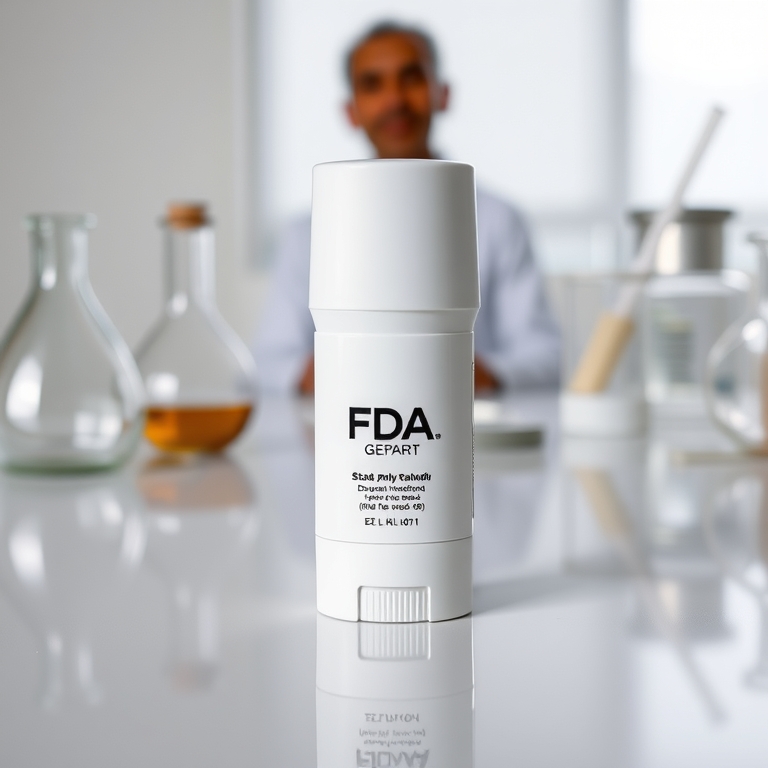In a move that has sent shockwaves through the consumer goods industry, the U.S. Food and Drug Administration (FDA) has announced a sweeping recall of a widely-used deodorant brand due to concerns over potentially harmful chemical ingredients. This recall, which affects millions of products currently on the market, underscores the ongoing challenges companies face in ensuring product safety while maintaining consumer trust.
The recall was prompted by findings from recent investigations that revealed the presence of a chemical compound in the deodorant that could pose health risks to consumers. The chemical in question is benzene, a known carcinogen that has been linked to an increased risk of developing certain types of cancer. Although the levels detected in the deodorant were reportedly low, the FDA has taken a precautious stance, emphasizing that there is no safe level of exposure when it comes to carcinogens. This decision aligns with the FDA’s mission to protect public health and ensure that consumer products meet stringent safety standards.
The deodorant brand, a household name with a significant market share, has been a staple in personal care aisles for decades, trusted by millions for its effectiveness and long-lasting protection. The recall affects various product lines under the brand, including both aerosol and solid formats, which are widely distributed across retail outlets nationwide. In response to the FDA’s announcement, the parent company has issued a statement reiterating its commitment to consumer safety and pledging full cooperation with the agency’s recall efforts. The company has also initiated its own internal review to determine how the contamination occurred and to prevent future incidents.
This development has sparked a broader conversation about the safety of personal care products and the regulatory processes that govern them. The FDA’s stringent oversight is designed to catch such issues before they can affect consumers, but this recall highlights the complexity and scale of the challenge. Manufacturing processes for personal care products involve intricate chemical formulations, and even minute errors can lead to significant consequences. The presence of benzene, in this case, suggests a breakdown somewhere in the supply chain, possibly at the level of raw material sourcing or during the production process.
Industry experts have weighed in on the implications of this recall, noting that while recalls are not uncommon, they often serve as stark reminders to companies about the importance of rigorous quality control measures. The deodorant recall is expected to have a ripple effect, prompting other companies in the sector to re-evaluate their own manufacturing processes and safety protocols. Many will likely conduct independent audits to ensure compliance with safety standards and to reassure consumers about the integrity of their products.
For consumers, the recall is a call to action to remain vigilant about the products they use daily. While the allure of brand loyalty can be strong, this incident underscores the importance of staying informed and proactive about personal health choices. Consumers are advised to check their current deodorant products against the FDA’s recall list and to discontinue use of any affected items. Retailers have also been instructed to remove the recalled products from shelves and to offer refunds or exchanges to affected customers.
The recall has also sparked a flurry of activity in the stock market, impacting the share prices of the parent company as investors react to the potential financial consequences. Analysts have noted that while the immediate impact may be significant, the long-term effects will depend on the company’s response and ability to rebuild consumer trust. The deodorant brand will need to engage in a transparent and comprehensive communication strategy to mitigate reputational damage and to reassure both investors and consumers of its commitment to safety and quality.
Looking ahead, this recall could serve as a catalyst for broader regulatory changes within the personal care industry. There is growing advocacy for more stringent regulations and clearer labeling requirements for consumer products. Some industry stakeholders are calling for the adoption of international safety standards that would provide a more consistent framework for evaluating product safety. Additionally, there is an increasing push for innovation in product formulations, with a focus on using safer, more sustainable ingredients.
In conclusion, the FDA’s recall of a popular deodorant brand due to harmful chemical concerns is a significant event with wide-ranging implications for the personal care industry. It highlights the critical importance of rigorous safety standards and the need for continuous vigilance to protect consumer health. As the situation unfolds, the affected company, industry leaders, and regulatory bodies will need to work collaboratively to address the immediate challenges and to implement measures that prevent similar issues in the future. The incident serves as a pertinent reminder of the delicate balance between product innovation, consumer safety, and corporate responsibility in today’s complex marketplace.

Leave a Reply